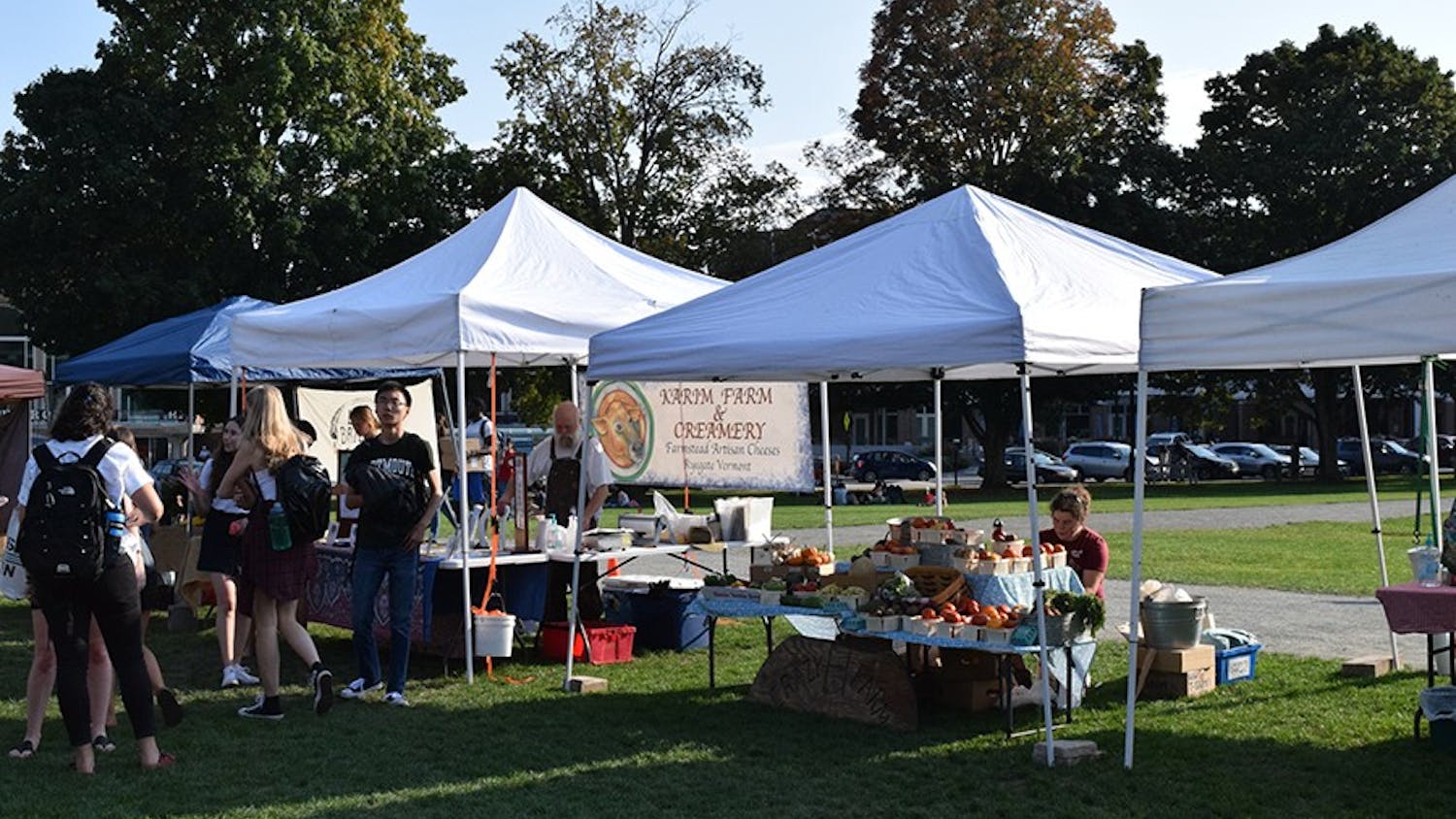As Dartmouth students and advocates for social justice, we are deeply disturbed by the recent events on our campus. On May 1, students gathered on the Green to peacefully protest Israel’s violence against Palestinians. College President Sian Leah Beilock’s administration chose to fight that peace with force, authorizing Hanover Police to take action against the protesters — which ultimately led to the presence of state troopers armed in riot gear and the arrests of 89 individuals. This response casts a shadow over the principles of free speech and student activism that we hold dear as members of the Dartmouth Rockapellas.
The Rockapellas is composed of students with diverse backgrounds, identities and views. Our time together has taught us that we must uplift diverse student opinions, not repress them. We stand with peaceful student protesters at Dartmouth and on campuses around the country, who remind us that we must not be complicit in the silencing of our voices. We condemn Beilock and her administration’s disproportionate response on May 1 and advocate on behalf of those who speak up for that in which they believe.
At the heart of our concern lies the driving mission of the Rockapellas, an a cappella group founded in 1989 with the goal of spreading social justice through song. We draw inspiration from social activists of the past. In particular, we are galvanized by Ella Baker, a human rights activist who relentlessly advocated for the rights of Black Americans during the civil rights movement.
Above all else, Baker believed that students were the future of social justice. She worked tirelessly to support youth and collegiate activism. In 1960, Baker aligned herself with a cohort of Black students from North Carolina A&T University — pioneers of the Greensboro lunch counter sit-ins. Recognizing the college students’ formidable potential to advance the cause of civil rights, she actively organized alongside them. She established the Student Nonviolent Coordinating Committee, which was founded on the concept of peaceful direct action. The first lyric that every new Rockapella learns is a powerful quote from Baker, included in “Ella’s Song,” arranged by the a cappella ensemble Sweet Honey in the Rock: “We who believe in freedom cannot rest.” As such, we believe that Dartmouth students and advocates of social justice cannot rest in our call for the restoration of our freedom of speech. And as students witnessing a ruthless violation of human rights in Gaza, we cannot rest in our call for the liberation of Palestinians.
Baker’s vision of youth leading activism has often manifested throughout Dartmouth’s history. In the 1980s, Dartmouth students erected shanties on the Green to protest South African apartheid for six months, culminating in the Board of Trustees’s decision to end investments in South Africa. From 2011 through 2012, Occupy Dartmouth — a student group established to protest the eviction of New York City’s Occupy Wall Street movement — pitched an encampment on Collis lawn and remained into the bitter Hanover winter. Protests on our campus have long demonstrated the indisputable strength of student-led dissent.
The common thread through these protests is their peaceful nature. The shanties represented community and solidarity among students. The Occupy Dartmouth encampment was allowed to remain standing for several months. Though each protest received considerable backlash, their successes were foundational to creating the Dartmouth we recognize today. Furthermore, as Beilock recognized in her email to the student body on May 2, there have already been more than 15 peaceful protests at Dartmouth this year — one of which was the occupation of Parkhurst Lawn by students on Oct. 28, which the Dean of the College has since acknowledged as being done by “consistently nonviolent activists.” The rhetoric surrounding encampments suggests that they pose a risk to community safety. However, the actions taken during past protests and the acknowledgments made by College administrators prove otherwise.
The brutal and intimidating police presence authorized by Beilock on May 1 was alarming and disproportionate. In an email sent to the community on the morning of May 2, Beilock wrote that “we cannot let differences of opinion become an excuse for disrupting our amazing sense of place and the lived experience of our campus.” However, our “amazing sense of place” must not be synonymous with uniformity. Acts of violence against protesters poison the principles of academic learning and engagement. Shutting down diverse opinions by allowing armed riot police on campus and causing students to fear for their physical safety contradicts the very essence of our campus’s “lived experience.”
The Dartmouth that we envision is a place where students of all backgrounds, political affiliations and opinions can speak up and engage in activism without fearing disproportionate punishment by the institution. It is a place where students can rally together for causes that they care about, no matter the subject. At institutions like Dartmouth, we as students are supposed to learn how to think, rather than what to think. What, then, is the value in learning these lessons if we can’t translate those thoughts into action? If passionate discourse and dissent about the most contentious issues of our time do not have a place at colleges like Dartmouth, then where else are they to endure?
To reiterate the words of Baker, “We who believe in freedom cannot rest.” During our time at Dartmouth, freedom has never felt farther away. Beilock’s actions on May 1 instilled fear and set a troubling precedent for free speech in our community. But this is not the end. We stand in solidarity with peaceful student protesters and with those fighting for justice for Palestinians. The struggle for freedom is ongoing on our campus. We will not rest until it is achieved.
Mariya Vahanvaty ’25
Lexy Piton ’24
Lauren Zhu ’27
Isabelle Jennings ’26
Joanna Olagundoye ’24
Mariya Vahanvaty is a '25 and a part of the Dartmouth Rockapellas. Opinion articles represent the views of their author(s), which are not necessarily those of The Dartmouth.



